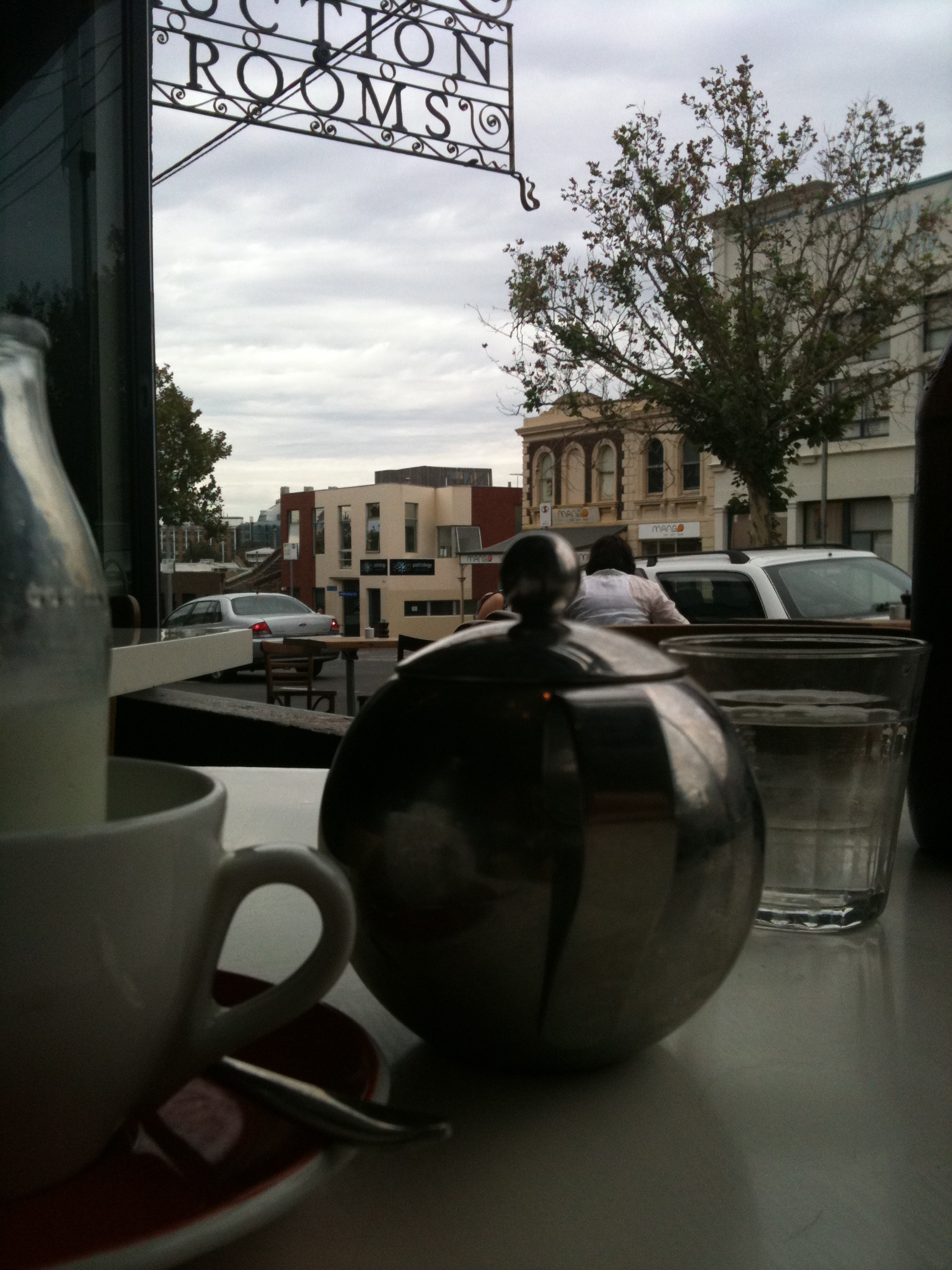I was in a state of absent-mindedness, sipping tea at a café on the edge of a writerly event. There was a din that echoed around the high-ceilinged space. People passed through the beam of my vision, noticed yet somehow unnoticed. My stare occasionally attached to bright things: a balloon on a string, a pair of red shoes, a fluorescent light high on the ceiling. At one point my gaze drifted upon a row of trestle tables where writers who had just presented were signing copies of their books. I sipped my tea again, inspecting the lines of inspired readers. And then the question came to me: Why is it that we like signed books? I wrote up the story ‘The hand that signed the title page’ which was later published in Meanjin.
The idea was a collaboration of sorts: one between me and the outside world. If I wasn’t near those tables I wouldn’t have had the idea. It depended on me being out, and open to seeing new things (albeit absentmindedly). I love this about writing non-fiction. I love the things you weren’t expecting, the stories people share with you and the ideas that give you new perspectives. And it all comes from participating in the world beyond our desks.
This year, the NonfictioNow conference is leaving its desk in Iowa, USA and coming to Melbourne (from 21 to 24 November). It’s the first time the conference is travelling, a move inspired by an Australian delegation that joined NonfictioNow in 2010. Co-chair and founder of the bi-annual conference, Robin Hemley (also Director of the Nonfiction Writing Program at the University of Iowa) says that the success of that international interaction (partly fueled by the cities’ connection as UNESCO Cities of Literature) inspired him to choose Melbourne as this year’s base.
Connections, collaborations and bringing people together was at the heart of Hemley’s move to start the inaugural conference in 2005. It was influenced by a similar innovation of his father, writer Cecil Hemley, who with Adolph Gottlieb and Weldon Kees started a series of meetings for artists in 1949. ‘Forum 49’ has since been recognised as landmark gatherings for the Abstract Expressionist movement. From this experience Hemley saw the benefits of bringing people together.
‘I’m proud of the fact that a number of really fine projects have come out of these conversations,’ he tells me. So far the conference has spawned several (including a film inspired by a chance reconnection). Hemley says the conference is geared toward practitioners, ‘I always try to avoid the boring academic conference where people are just reading stodgy papers to each other. It’s awful and that’s not a conversation,’ he says.
But it’s not a purely craft-based conference either. Topics discussed will include themes common to non-fiction (such as the fact verses fiction debate). Hemley says these discussions will, ‘move the conversation forward and not just get stuck on the same subject all the time.’ He hopes delegates will go away with a stronger understanding of the boundary-pushing work that is being done in non-fiction.
‘What you can expect is a conference unlike any other because it’s not a conference where authors come to flog their books. It’s really a conversation between writers and teachers of non-fiction… We’ll be talking about where non-fiction’s been, where it’s going, new directions [and] some of the hot topic issues,’ says Hemley.
If Hemley's inspiration for the conference has its way with you, you may come away with a few story ideas. At the very least you'll meet some kindred spirits from across the globe.
The full program will be released soon. You can find it and registration details on the NonfictioNow website.
Future of Long Form is one of four official blogs for NonfictioNOW. I will certainly be there to collaborate, contribute, sip tea from the edges, stare absentmindedly and see where it all takes us.




